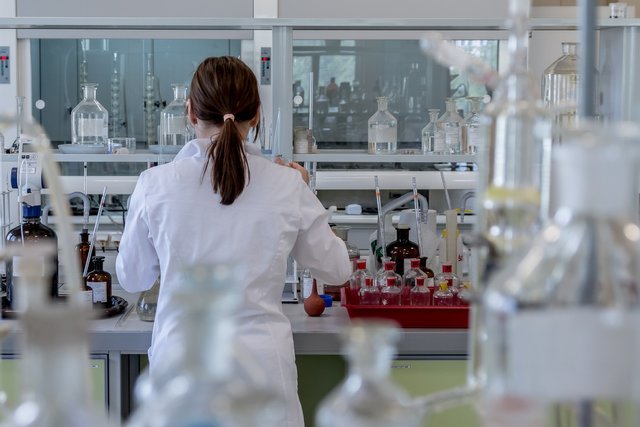GM(O)MG
In science, there is no such thing as absolute truth, only conclusions drawn from the evidence.
I encourage you to examine the evidence and decide for yourself.

GM(O)MG
Genetically modified foods are crops where genes from bacteria or viruses are forced into their DNA. Two main kinds are those that are engineered not to die when sprayed with toxic herbicide and those that produce their own toxic insecticide.
A problem arises in the former instance because crops can be doused in herbicides and even thorough washing may not be effective. And in the latter case no amount of washing, no matter how thorough, can eliminate the insecticide because it’s bred right into the plant.
For the GMO’s bred with genetic pesticides, they kill the insect (after it eats the crop) by poking holes in the cells of their stomachs. Some tests on human cells show similar effects, despite claims by supporters that humans are not affected. The hazard of ingesting insecticides is simple to recognize. Many researchers regard GMO food to be a source of increased digestive issues in humans, and especially children, causing inflammation. All of this is leading to a much higher percentage of allergies and other environmental sensitivities since GMOs were introduced in 1996.

TESTING, 123…. TESTING
If GMOs were introduced in 1996, then why isn’t there more research done on consuming them?
Substantial independent testing is nearly impossible to create, as scientists critical of GMO’s are in danger of losing their funding and their jobs, not to mention, having their reputations attacked.
The farmers are hesitant to give up the seeds for research because of the paperwork they signed in order to grow GMOs. You see GMO’s are patent and you are forced to sign paperwork saying you will not do any testing on the seed. The biotech industry uses that as leverage to keep their potentially deadly product from being tested without severe repercussions on the tester.
What is the effect of humans, animals, and the environment? Despite assurance from the biotech industry - which of course has a massive financial stake in GMO production - there truly isn't any long-term data at this point for either humans or animals.
Transfer of genes to gut bacteria
In spite of industry claims, transgenes survive the digestive system and can wander. Industry advocates insisted that genes were destroyed by the digestion of food and therefore gene transfer to gut bacteria or organs was extremely unlikely. Studies now verify that genes can survive digestion, both in humans and animals.
Animal studies also verify that it can pass through the placenta into the fetus, from the digestive channels into the blood and organs, and even penetrate the blood-brain barrier.
The only human feeding trial ever published confirmed that genetic material from Roundup Ready soy transferred into the gut bacteria in three of seven human volunteers.
This study gives new meaning to the adage, “You are what you eat.” Long after those GM corn chips you munched are history, your intestinal flora may still be churning out the “Bt” pesticide GM corn and soybean plants have been engineered to produce. There is also no known way to treat such a condition, which may be long-term.
What about the children!
Yeah, what about the children? Research shows that the pesticides from GM crops have made it into the blood of pregnant women and have been found in 93% of unborn babies. So what about the children? Babies skulls are not developed leaving the poison-laden blood to pump through their brains potentially leaving the same holes that it leaves in the stomachs of insect, as well as ours.
Animal studies on non-GM DNA verify that it can pass through the placenta into the fetus, from the digestive channels into the blood and organs, and even penetrate the blood-brain barrier.
Processed poisons
What we eat really matters. GMO’s are pervasive in processed food, especially GMO; soy, corn (including corn syrup!!!!), cottonseed oil, and canola oil. It is estimated that as much as 80% of foods in a typical supermarket contains GMO ingredients. Eliminating processed foods from your diet can be a great start to avoiding GMOs.
Genetically modified foods have become such a pervasive part of the standard American diet it is nearly impossible to avoid them. Major lobbyists hold sway over political opinion. The ever-tightening grip of Big Agriculture is set to become unbreakable.
Popular opinion can work toward eliminating GMOs in our food. In May 2013 a loosely organized movement resulted in an estimated 2 million people protesting Monsanto, one of the leading GMO biotech firms. The biotech firms pour money into defeating measures to have their product labeled, knowing that humans, given the information would likely choose to avoid GMOs.
Some people practice the art of denial so well.
People believe any plausible denial they feel more comfortable believing.
Sources:
http://www.i-sis.org.uk/Bt_Toxin_Kills_Human_Kidney_Cells.php
https://www.ncbi.nlm.nih.gov/pmc/articles/PMC5236067/
https://responsibletechnology.org/gmo-education/section5/
http://gaia-health.com/miscellaneous/science/gmo-toxins-nearly-pregnant-women-fetuses/